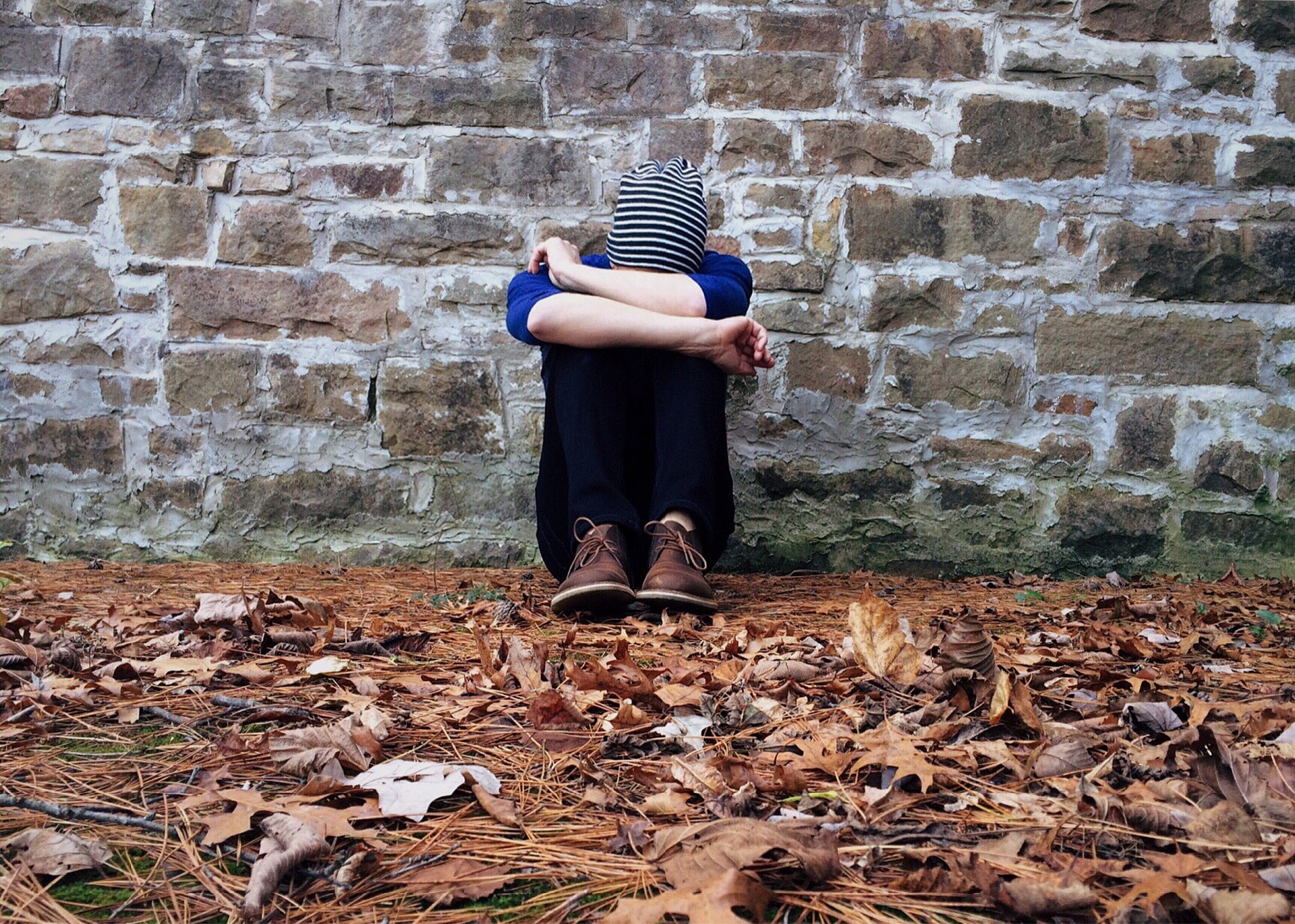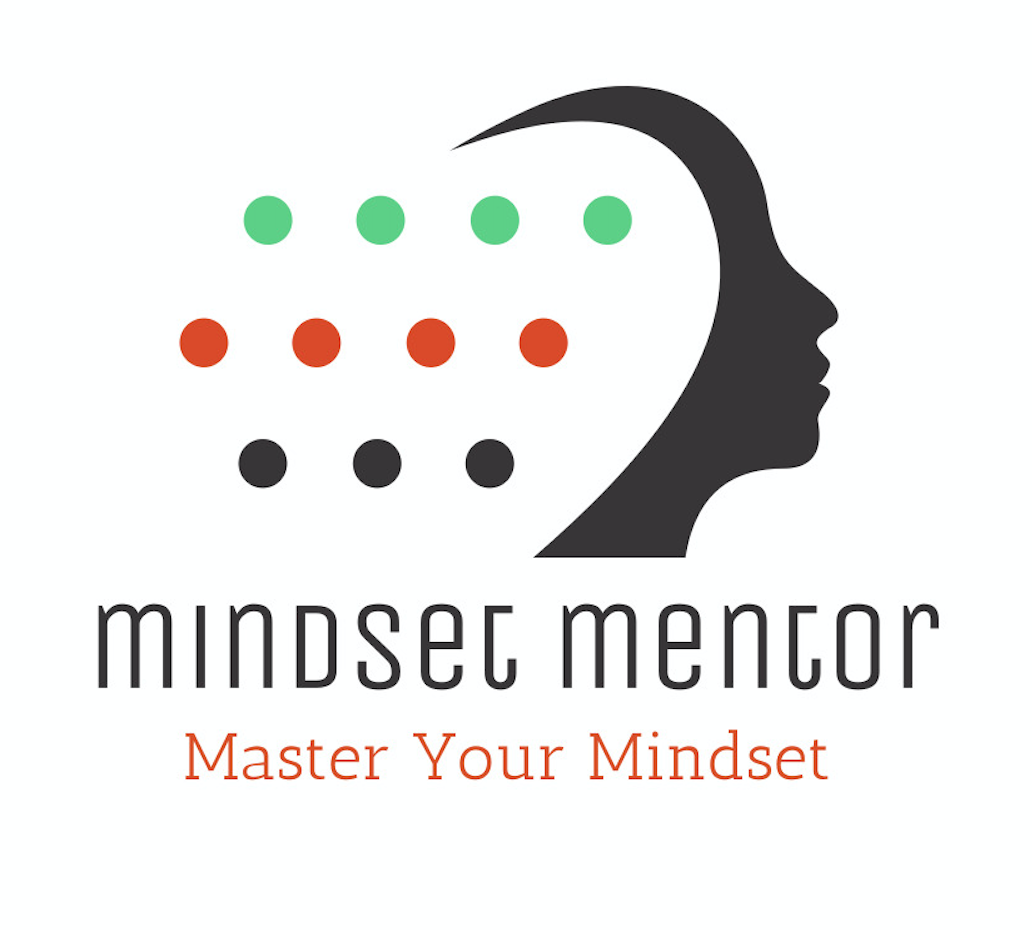15 Ways To Thrive When Friendship Ends
“Life is a bus ride, with only so many seats. It took me a long time to comprehend that sometimes people had to leave my life, to make room for the better ones, but once I understood that it became easier to let go, and I was surprised at just how quickly new, interesting people somehow found their way onto my bus.” ― Dodie Clark
When A Friend Dumps You
I was out walking my dog when her text came through. We had just turned onto this side street, and Harry and I had found a nice steady pace. It was 8.37am on a glorious and sunny, summer morning. There was still a little crispness to the air, but in 20 minutes it would be too hot to be walking. I was happy, Harry looked happy too.
Then my phone beeped, which is unusual at that hour on a Sunday, so I reached into my bag to see who it was from. It was a message from one of my oldest friends. I got that warm feeling you do when a good friend messages you. So, I dove in to see what she had to say…
To my complete surprise, she was notmessaging me to see when we could catch up next – she was un-friending me!!
Apparently, she’d been feeling hurt and angry for months because she felt I didn’t contact her often enough. And, while she was on a roll, she followed that up with a few more hurtful accusations, before saying that she was not open to talking about any of this with me! That was it. Without discussion and without warning, she was pulling the plug.
I had just been dumped. Wow. And ouch!
Has something like that ever happened to you?
Losing a friend can really hurt. Especially when you get dumped completely out of the freakin’ blue. I mean, some friendships slowly drift apart over the years…and that can be truly sad too…But when a good friend suddenly and unexpectedly opts out of your life – stops taking your calls, quits inviting you places, or outright dumps you with no explanation – well it can be a real shock!
At least, that was my first reaction:
“She’s dumping me! Why is this happening? We’ve been good friends for two decades! We only just saw each other a few weeks ago! What is she talking about?”
Look, I’d be lying if I said there wasn’t some truth to her accusations. I’m a massive introvert, so socialising takes effort for me. Plus, I’d had a really rough year, and hadn’t felt much like seeing people. Ironically, one of the few events I had made a big effort to attend was this friend’s party…
I guess you could say I’d been enjoying a self-imposed, year-long retreat – which was exactly what I needed. And I was just starting to come out of that space when her message came through. In my mind, we’d seen each other a couple of times in the past year, which wasn’t optimal, but was also not far off normal…We’d had a few good chats via social…So yeah, her message really came as quite a shock.
She was one of my oldest friends. We had worked together, partied together, and even lived together for a few years in our late 30’s. Our friendship was warm, we had lots in common, and we had never once had a fight in the entire time we’d known each other.
The Pain of Being Dumped

Getting dumped hurts. Doesn’t matter if you’re 15 or 50. For me personally, I had not seen this coming, so that made it even more challenging to accept.
“Why had she not even bothered to raise her feelings with me? After 20 years!! Wasn’t I worthy of a conversation? Surely, she knew that I’d been going through a difficult time? Why hadn’t she reached out to me? And how gutless to not tell me in person!”
In a matter of seconds I had gone from happy, to shocked, to pissed off!
I felt attacked by some of the things she had said, and my hind-brain had shifted into self-protect mode. As a result, my thoughts quickly jumped into anger, blame, and judgment.
Anger is an emotion the brain defaults to when it feels attacked.
Thankfully I was out walking, and this really helped me be more present to my reactions – probably because anger is such a physical emotion, so moving your body can really help.
Besides, I knew that anger was an easier “emotional go-to” and that I was probably really sad and hurt underneath it all. For that reason, I decided to release my anger and drop in deeper.
That’s when I started to cry. Luckily, I was wearing sunnies, so I could allow the tears to flow without embarrassment as others strolled past me on their morning walks. I even pulled my hoodie up over my head, although it was far too warm by now for that!
She was one of my dearest friends. Someone I truly valued and cared about. And now our friendship was over. I was gutted.
At the same time, I could see that she was obviously hurting as well. I’ll never understand why she didn’t come to me earlier with those feelings – but I have to presume that was the best she was capable of doing at the time.
Regardless, that was the reality and I just had to accept it.
How To Thrive When Friendship Ends
Losing a friendship can be tough, but getting dumped doesn’t have to be your undoing. I was determined not to let this situation pull me down. I had just come through a rough patch, and I as far as I was concerned, “the only way was up.”
As I worked through my reactions to being dumped, I realised there there were five major emotional traps that could easily keep me stuck:
- Rumination
- Regret
- Rage
- Retaliation
- Rejection
Therefore, I knew that to avoid these traps, it was important to be clear and conscious, make a plan for how I was going to get through this, and get back to thriving.
Since I love to write, in the days and weeks that followed this episode, I chose to journal about all my thoughts and feelings. This really helped me, and within weeks, I was hardly thinking about what had happened. I was not ruminating on being dumped, and I was focusing forward on what I wanted to create.
Around the same time, a couple of my wonderful coaching clients mentioned they were going through similar challenges. That’s when I decided to speak openly about getting dumped by my friend.
I figured that if I could share what I had learned from going through this, perhaps I could help someone else, and that would mean that something truly valuable had come from this painful moment.
So, here’s my list of 15 ways to thrive when a friendship ends…
15 Ways To Thrive When A Friend Dumps You
1. Acknowledge and make space for your feelings.
It’s normal and natural to grieve when any relationship ends. And getting dumped by a friend can be as painful as any romantic breakup. Let your feelings rise to the surface, make space for them, and allow them to just move through you, like clouds passing in the sky above. Avoid attaching yourself to your feelings of grief and loss. Try not to feed them with unhelpful thoughts and depressing stories.
Practice: A simple way to accept and make space for your feeling is to repeat a simple statement of acknowledgement: “I notice I am feeling sad right now. There is anger rising up within me at this moment. I’m going to acknowledge and breathe through all these feelings.”

2. Accept the normality of change.
Friendships end. It’s a natural and normal part of life. Don’t make a bad situation worse by wishing things would go back to how they were (they won’t), and generally resisting what is. Accept your new reality as quickly as you can, so you can move forward with your life.
That’s the first thing I did which really helped; I accepted the change and normalised it. I hadn’t chosen this change, but it wasn’t the end of the world either. It was the end of a friendship, and that kind of thing happens in life.
Practice: Repeat a mantra like: “Change happens” or “This too shall pass.”
3. Don’t personalise it.
When a friend dumps you, I get that it feels like YOU are being rejected. But you don’t know what’s really going on for that person, or what their real reasons are for not wanting to continue with the friendship.
Maybe they have a controlling new partner. Or perhaps they didn’t want to be emotionally vulnerable and admit they were feeling rejected by you, so they took the easy way out. Maybe they were secretly crushing on you and couldn’t stand the heartache anymore. Who knows? Certainly, you can drive yourself crazy with questioning, but that won’t change anything.
When my friend messaged me, she said some hurtful things and I definitely took it personally to start with. But soon, I recognised that some of the things she said actually had nothing to do with me, and were quite peculiar. So, I decided to believe that there were hidden factors, things I could not understand, which had led to her decision. And the accusations that did resonate, well, I couldn’t understand how they justified ending a 20-year friendship. Ultimately, her decision was about her – it was the right thing for her at this time in her life – and that’s really all I needed to know.
Practice: Try not to take everything to heart. Imagine there is a bigger truth that you don’t understand.
4. Be non-reactive.
Maybe a matter of weeks before my friend dumped me, I’d read this parable of a Zen monk, and it really helped:
A beautiful girl in the village was pregnant. Her angry parents demanded to know who was the father. At first resistant to confess, the anxious and embarrassed girl finally pointed to Hakuin, the Zen master whom everyone previously revered for living such a pure life. When the outraged parents confronted Hakuin with their daughter’s accusation, he simply replied “Is that so?”
And when the child was born, the parents brought it to the Hakuin, who now was viewed as a pariah by the whole village. They demanded that he take care of the child since it was his responsibility. “Is that so?” Hakuin said calmly as he accepted the child.
For many months he took very good care of the child until the daughter could no longer withstand the lie she had told. She confessed that the real father was a young man in the village whom she had tried to protect. The parents immediately went to Hakuin to see if he would return the baby. With profuse apologies they explained what had happened. “Is that so?” Hakuin said as he handed them the child.
I had this story in my mind as I read through my friends’ accusations.
It enabled me to be less reactive. And it helped me to see that her feelings, beliefs and decisions did not have to define me. Like the Zen monk, Hakuin, I did not need to be concerned with the opinion’s of others, I just had to be concerned with what I knew to be truth. The rest will take care of itself.
In addition, try to remember that when someone accuses you or attacks you, they may well be engaging in a process psychologists call “projection”. Projection is the unconscious transfer of one’s desires or emotions on to another person. Rather than own our own shit, we project it onto others.
So just remember, that if your friend has dumped you in a shit-storm of accusations, they are probably telling you more about their inner landscape than they are describing the reality of you.
Practice: Internally say the words “Is that so?” and let their insults or actions slide from your heart like water off a ducks’ back.
5. See your friends’ perspective.
This can be very hard to do, but I encourage you to try. There is always another perspective in every situation. Your friend has one, and it may well differ from yours. Try to take their side for just a few moments, as this will help you have compassion and broaden your own perspective.
For example, I could see my friend was hurting. She had a need for more contact, that I was not fulfilling. Additionally, she was shut down and not open to working it through. Whilst that sucked for me, when I stepped into her shoes, I could accept that this was what she ultimately needed.
The goal here is to grow your psychological flexibility, not to engage in self-blame. Step into their moccasins and realise there is always more than one truth. Furthermore, to recognise someone else’s truth does not mean you have to agree with it. The world is complicated, and more than one truth exists in every situation.
Practice: Ask yourself these questions: “What is my friend’s perspective in a nutshell? Can I acknowledge that perspective on things?”
And if you start to move into self-blame, try asking:
“Am I less worthy because my friend holds a different perspective of me? Is my value diminished because my friend now chooses not to engage with me?”
6. Own your part in how things turned out.
Unless you are an enlightened being, then chances are you are still causing pain and suffering in your own life, and the lives of others. None of us is perfect. Taking responsibility for your part in things can be very liberating.
It can also be very challenging to do, because the ego will go straight into self-defence mode when you feel attacked. That’s where the 1% method can be helpful.
I could see that my friend was right – I had not made much effort over the past 12-months. I acknowledged this in my response to her and apologised for any hurt this had caused. It was certainly not personal – just a result of how I was coping with what I was going though in my own life.
Practice: Ask yourself, “Is there even 1% of truth in what my friend has said about me?”
In this practice, start by aiming low, and look for just 1% truth. Upon reflection, as your defensiveness reduces, you may feel you can happily claim 15% or 50% responsibility for the break-down of the friendship.
In very rare cases, you may ask this question and just come up with 0%. If that’s the case, and you truly feel there is no fault attributable to you, then calmly stand for your truth (if need be) and move on.
7. Look for the learning.
Growth and learning are the silver lining to every dark cloud. If you can learn something from every painful experience, then you’ve made lemonade out of lemons.
Additionally, growing and gaining something for yourself will take the sting out of rejection. (Too many metaphors?? Okay, I’ll stop!)
Practice: After you have given yourself some time to process your feelings, ask yourself, “What has this experience taught me that is valuable? The biggest takeaway for me is…? How can I apply what I have learned here moving forward?”
8. Appreciate the good times you shared.
Appreciation is the fastest way to cure emotional hurt. If you can quickly move to a place of remembering the good times you shared and the value the friendship brought to your life, then you will be empowered to move on. Sure, the friendship may be dead in the water, but that doesn’t have to stop you from appreciating what was. It’s important that you don’t get stuck in regret and sadness – this should be more like a celebration than a funeral.
Practice: For those high achievers who are reading this, then aim to appreciate the way your friend dumped you. See that their actions were perfect, and have given you exactly the experience you needed to have to grow stronger, or as Eckhart Tolle says:
“Life will give you whatever experience is most helpful for the evolution of your consciousness.”
9. Express yourself calmly and authentically, without drama.
If the opportunity allows it, then you may wish to express yourself in response to what has happened. It’s a good practice to write a draft version of any correspondence (sms or email), and let it sit for 24-48 hours before reviewing it and deciding whether to send it or edit it further.
Expect that at first, your first thoughts may be full of anger and hurt, and you may fall into attacking as a means of self-protection. My first few drafts still came across and angry and blaming, so I kept working through and releasing those feelings until I got to a cleaner response.
After 24-hours I wrote back to my friend via email and thanked her for our 20+ year friendship. I acknowledged some of her accusations, and refuted others. Then, I told her I was disappointed that she had not bothered to share her feelings with me so we could discuss things, and that she had made no effort to salvage what had been a great friendship. Finally, I reflected that she had probably done me a favour by ending it, and then I said goodbye. In retrospect, I wish I had been wiser and embodied more of the “Is that so?” approach from #4. My hurt and anger came through in places. But I did my best. My objective was to respond quickly so I could start moving on.
Practice: Keep writing until you get to a version that you’d be happy for anyone to read.
10. Focus on what’s great in your life, and get busy doing it.
When painful shit happens, it can suddenly take up your whole view of the world. It’s easy to forget that you also have a whole lot of good stuff happening in your life. For that reason, you need to actively shift the focus of your thoughts and feelings onto the good stuff.
Remember, you are not a slave to your mind or your emotions. Focus on what you have got, rather than on what you have lost.
Practice: Choose what you give your energy and attention to. Get enormously gratefulfor all the good things going on in your life, and pour your energy into those.

11. Make new friends that reflect who you are today.
One of the hardest things to do is to get straight back on the horse after it bucks you off. But it is absolutely the best thing to do! Go out and connect with new people. Join a Meet Up group, a sporting team, or a reading club. Accept invites to parties and mingle with new people.
When I was dumped, a new friend invited me to join a local tennis coaching group. It was a no-brainer to accept: I love tennis, and it got me out, got me interacting with a whole new tribe, got me moving, having fun, and realising there was life beyond the death of my friendship.
Practice: Before each event, set yourself a clear intention for the kind of friends you want to have in your life, and how you are going to show up in your interactions with others.
Ask yourself:
“What kind of friends do I want in my life? Who do I need to be to attract those kind of people? What 3 qualities do I want to bring to my social interactions?”
12. Discreetly disconnect on social media.
Don’t go out in a blaze of fury, and don’t leave hate on their Facebook page. Definitely don’t lose energy stalking them on Insta to see how much fun they are having without you. Instead, just quietly cut ties so you can move on without having daily reminders of your ex-friend on your social feed.
Practice: Stay off social for a month to help resist the urge to check-up on them or chew them out.
13. Treat yourself kindly.
As an antidote to not feeling valued, go out and really value yourself, do something nice for you, splurge, treat yourself. It will make a huge difference and doesn’t have to be expensive.
Practice: Be a good friend to yourself. Here’s some ideas:
- Get a massage.
- Take yourself to dinner.
- Treat yourself to a movie or stay in and watch a dvd.
- Ask yourself on a date (and say yes).
- Buy yourself some new clothes (from an op shop if money is tight).
- Gift yourself a membership to a gym.
- Buy yourself an ice-cream or a new bike.
Whatever works for you!

14. Don’t feel bad for moving on quickly.
Life is about adaptation. It doesn’t mean you care about that person any less if you choose to get over them quickly – it just means you are good at adapting to change. Sure, it might feel weird at first, not inviting them to events or speaking to them if you see them on the street, but all you can do is sit with those feelings of discomfort (see #1) and keep moving forward.
Practice: Tell yourself “It’s okay to move on with my life and enjoy it.”
15. Forgive and release.
Ultimately, you will forgive and release your friendship. A great question to ask yourself is, “How long will I choose to hold onto my anger and hurt?” I guess, theoretically, you could carry those feelings to your grave. But why would you? That won’t change anything externally – it will just create more pain and suffering in your own life.
Practice: Try a forgiveness & release ritual (or create your own):
– Find a photo that connects you to good memories, meditate on it for a few moments, and really feel gratitude for the good times you shared, then release the photo into a stream and watch it float away, while saying the word “Release” over and over to yourself.
– Write a letter to say goodbye, thanking your friend for the good times. Let the tears roll. Then, when you are done, tear it up, flush it, or burn it.
“Growing apart doesn’t change the fact that for a long time we grew side by side; our roots will always be tangled. I’m glad for that.” – Ally Condie
In Conclusion
So, those are my 15 way to thrive when friendship ends.
Some of the strategies may seem to contradict each other. It’s meant to be that way, because our goal here is psychological flexibility, and that requires being able to see your life circumstances from multiple perspectives. It means being able to pivot, and transition through each aspect of the change that is happening.
In the end, I was able to move on quite quickly, using the mindset strategies discussed above…and I hope they help you to do the same if and when you find yourself being dumped.
Whilst I still think fondly of my old friend, I decided early on that I was not going to allow her decision to take the wind out of my sails. I was on a positive trajectory in my life and I was moving forward (with or without her in it). Ultimately, it’s up to me to enjoy my life and not waste time living in sadness and regret!
Life is short. Be with the people you want to be with, and let the others do their own thing.
One Final Word on Being Dumped
Hey, and one final word…
These strategies may not come easily to you and that’s okay. I have been practicing and teaching this stuff for almost three decades…and I still have to work hard at it. So, if your grief really hits you hard, then get support from a counsellor or coach.
You know, rather than spend months ruminating about it, book yourself in for a session with a trusted counsellor and work through things in a safe and non-judgmental space. Then you could team up with a coach to focus forward on how to create more joy and fulfilment in this part of your life. You’ll be glad you did!
Well, thanks for taking the time out of your busy life to read this article. It means a lot to me. Without you, I wouldn’t get to do what I love.
So, here’s to your success and fulfilment,
Michelle xx


